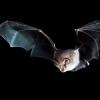An international research team has singled out mutations in 11 genes that are associated with aggressive prostate cancer.

These findings come from the largest scale prostate cancer study ever exploring the exome – the key sections of the genetic code that contain the instructions to make proteins.
The scientists analysed samples from about 17,500 prostate cancer patients.
The study, led by scientists in the Centre for Genetic Epidemiology at the Keck School of Medicine of USC and USC Norris Comprehensive Cancer Centre, uncovered mutations associated with higher risk for more aggressive, deadlier prostate cancer that are not currently included on genetic test panels. The researchers also found some genes that are currently part of such panels that are not linked with risk for aggressive disease.
Corresponding author Christopher Haiman said: “It’s clear that more work needs to be done to determine which genes oncologists should focus on in testing.”
Image credit | Science-Photolibrary




